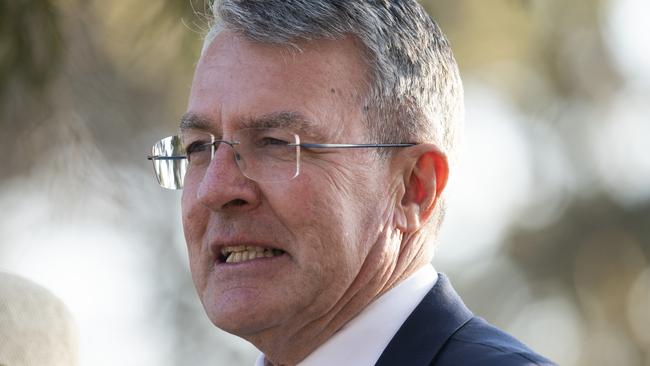Labor’s changes to secrecy laws do not go far enough, says Human Rights Law Centre
Changes to secrecy laws that would make it impossible for police to raid journalists without approval from the attorney-general ‘do not go far enough’, the Human Rights Law Centre has warned.

Changes to secrecy laws that would make it impossible for police to raid a journalist’s home or office without a direct sign from the attorney-general “do not go far enough” to protect press freedom and transparency, the Human Rights Law Centre has warned.
Attorney-General Mark Dreyfus announced on Tuesday the government would strip criminal liability from almost 170 secrecy offences and create a more general criminal offence in their place.
The reforms follow a review into secrecy provisions commissioned by Mr Dreyfus, which recommended laws that would force police to seek ministerial consent before attempting to prosecute a journalist.
“The Albanese government believes a strong and independent media is vital to democracy and holding governments to account,” Mr Dreyfus said.
“Journalists should never face the prospect of being charged or even jailed just for doing their jobs.”
The reforms follow police raids of ABC offices in Sydney and the Canberra home of then News Corp journalist Annika Smethurst in 2019 in relation to the publishing of classified information.
A spokeswoman for Australia’s Right to Know coalition said the Attorney-General’s “leadership and commitment” to address commonwealth secrecy provisions was welcome.
However, Human Rights Law Centre senior lawyer Kieran Pender urged Mr Dreyfus to “go further” in changes that would improve transparency of governments.
“The changes … do not go far enough to strike the right balance between secrecy and transparency in our democracy after a decade of opacity,” he said.
Mr Pender also criticised the proposed new general secrecy offence announced by Mr Dreyfus in response to the PwC scandal, which would apply to public servants that cause harm by any breach of confidentiality.
“The … general secrecy offence goes too far in criminalising the disclosure of public information,” he said. “The government’s review has also refused to recalibrate secrecy offences that apply to all Australians, not just public servants, and ignores calls for a general public interest defence.
“The government should not waste this opportunity to robustly protect transparency and press freedom, which are cornerstones of our democracy.”
Greens justice spokesman David Shoebridge also raised concerns the reforms did not deliver the degree of change needed to appropriately improve transparency.
“We welcome the proposed removal of criminal sanctions from 168 secrecy offences as a step in the right direction but it’s far from enough,” he said.
“The collective outrage at the steady creep of secrecy laws has clearly been heard by this government, but unfortunately this review doesn’t yet deliver the scope of change needed to get the balance right.”






